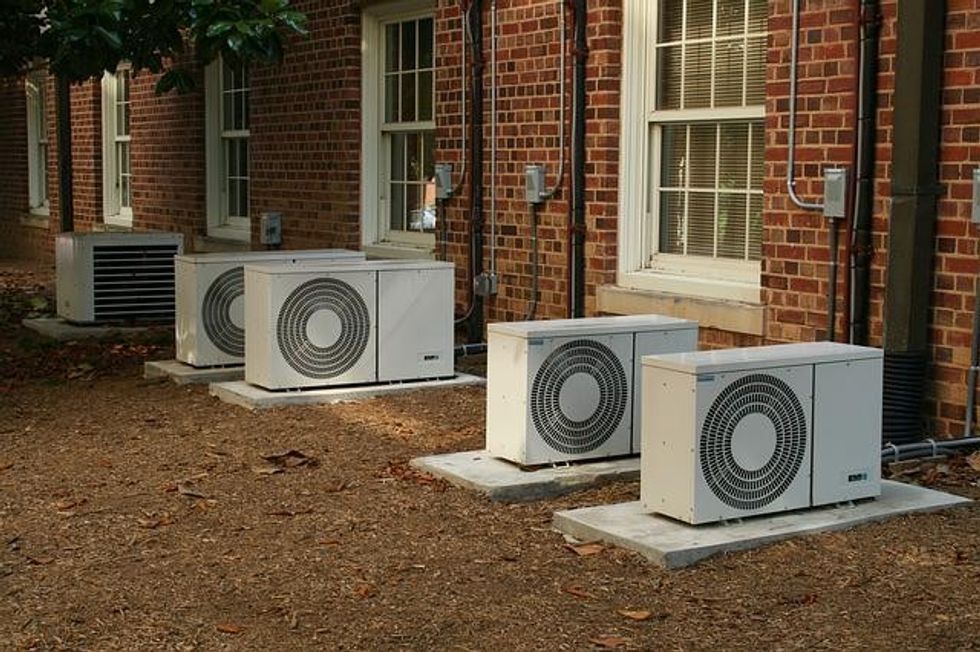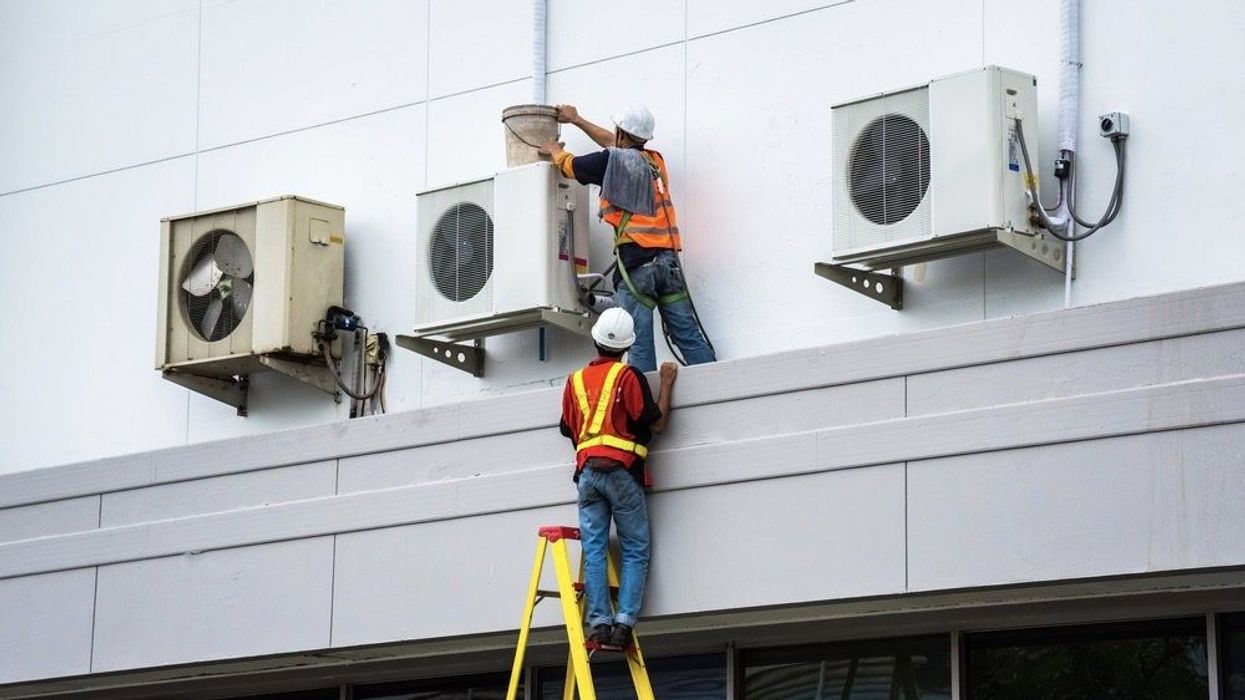It’s time to get serious about keeping cool.
In response to impossible-to-ignore ramifications of global warming, mandating air conditioning has been a hot topic (no pun intended) in recent years, as temperatures have climbed to record-breaking highs.
In a press release issued on Friday, the Ontario Human Rights Commission (OHRC) called on Doug Ford’s government to designate access to air conditioning as an essential service to tenants across the province. The OHRC called for the implementation of a maximum provincial temperature and the ability for all Ontario tenants to access air conditioning under the Residential Tenancy Act (RTA).
“Access to cooling during extreme heat waves is a human rights issue,” reads the press release. “As temperatures rise due to climate change, extreme heat waves have and will continue to disproportionally impact groups protected under Ontario’s Human Rights Code (Code)."
The OHRC highlights how people with disabilities, older people, and low-income Indigenous, Black, and other racialized communities are more at risk to heat waves, with little or limited access to air conditioning. Furthermore, these groups are more likely to live in areas with fewer parks of shaded outdoor areas, says the OHRC.
The OHRC says that people experiencing homelessness -- an issue that’s become notably more prevalent during the pandemic, especially in big cities like Toronto -- also face increased risks of exposure-related illnesses associated with the rise in temperature. This is particularly true in urban areas where heat is more extreme.
Yet, there’s no law that protects people from extreme heat by the way of air conditioning. And it’s become glaringly obvious that this needs to change.

While municipal regulations can require housing with central air conditioning systems -- such as long-term care homes or other multi-unit housing -- to maintain a maximum temperature of 26 C between June and September, there is nothing set out in the RTA requiring all Ontario tenants be permitted access to air conditioning during the summer months.
On the other hand, access to heat is a vital service, and Ontario tenants are legally required to have access to heat from September 1 to June 15.
Not only uncomfortable, heat can be deadly. Last year, Dr. Teela Johnson, a Toronto-based hospitalist and emergency physician told STOREYS that -- as opposed to a luxury -- air conditioning should be considered just as important as heat.
"The elderly have decreased ability to cool their bodies through sweating, and often have conditions that prevent them from being physically able to walk to the tap or even be able to swallow liquids easily. This can lead to critical dehydration that can land them in hospital,” says Dr. Johnson. “They often also have conditions like chronic kidney disease that make dehydration particularly dangerous because it can cause life threatening electrolyte disturbances or concentrate medications in the blood that are excreted through the kidneys.”
For new parents, regulating home temperature in the warmer months is particularly important. “At the other end of the lifespan, babies’ rooms should be kept between 18-22 degrees to reduce the risk of SIDS,” says Dr. Johnson.
The OHRC highlighted a “concerning trend” of landlords pushing back against the installation of air conditioning units, threatening tenants with rent increases or eviction. This situation has played out in Toronto this summer, as documented by media reports. “Any situation where a housing provider issues a complete ban on air conditioners and cooling devices without exceptions likely violates the Code and could lead to a human rights complaint,” writes the OHRC.
Geordie Dent, Executive Director of Federation of Metro Tenants’ Associations (FMTA), echoed the sentiment on a call with STOREYS.
“AC units are going to be allowed as long as they are safely installed and not prohibited in your lease agreement,” says Dent. “Many landlords, however, are telling tenants they can’t have AC or AC window units or will have to all of sudden start paying for AC use. In many instances this is totally illegal. As such, we also encourage people to check with our hotline if they are being told they can’t have AC.”
Alarmingly, not all of Ontario’s long-term care homes currently have air conditioning. According to the latest figures from the Ministry of Long-Term care, 79 of Ontario’s 627 long-term care homes have not met a mandatory provincial requirement to install air conditioning units in the rooms of residents. This reality remains, two months since the deadline to install the units. With that said, progress is being made to install the units at the remaining homes.
At last.
One needs only to consider events of recent years -- last year's deadly heat wave in Vancouver that claimed over 700 lives or this spring's record-breaking temperatures in Toronto -- to recognize that the time has come to shift our thinking of air conditioners as "nice to have" to essential items.





















